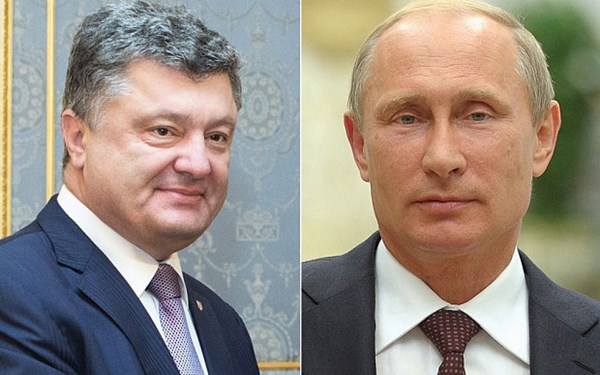Russian media says that Putin and Poroshenko were joking on the phone, Kyiv denied the reports
Russian newspaper Kommersant reports that the presidents of Russia and Ukraine, Vladimir Putin and Petro Poroshenko, continue to communicate over the phone, with the last conversation taking place in the first half of April, as indicated in the Friday edition, citing the paper’s sources.
The Administration of the President of Ukraine stated that this reporting was false.
"The only conversation between them in April took place on April 18th in the Normandy discussions, the details of which were reported in a joint press release by four press services," the Administrttion of the Ukrainian President said in a commentary Ukrayinska Pravda.
According to Kommersant’s sources in Moscow, the conversation allegedly took place in a "respectful, proper manner," and the heads of state periodically "switched to a playful, ironic tone."
"The presidents were forced to joke to prevent a quarrel and not to start criticizing each other," the source said.
According to the publication, the conversation concerned the situation in the Donbas: "No concrete agreements were reached, and the only issues on which they managed to make progress on concerned "certain humanitarian aspects."
At the same time, Kommersant’s sources, who are close to Petro Poroshenko's circle, said that allegedly the conversation entailed the exchange of prisoners, the supply of food, water and electricity to the Donbas, as well as the payment of pensions to Ukrainian citizens in living in the separatist-held territories.
"Petro Poroshenko warned the Russian president that if DPR (Donetsk People’s Republic) and LPR (Luhansk People’s Republic) do not pay their debts for electricity, supplies from Ukraine will be stopped. Which has happened," the article says.
"As with other prior telephone conversations between Mr. Putin and Mr. Poroshenko, the parties did not publicize the fact that the presidents had talked with each other in order to prevent Poroshenko’s opponents from having another reason to accuse him of "unpatriotic behavior" and of communicating with the "leader of the aggressor country," the newspaper wrote.
